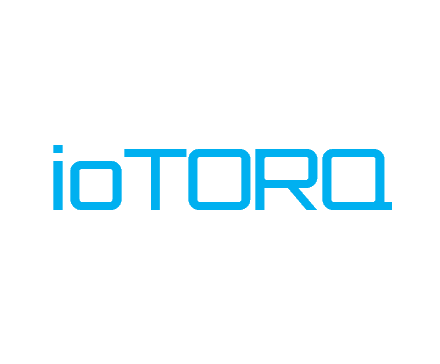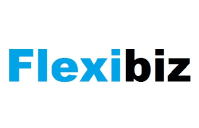Description

eMpower Contract Labor Management

ioTORQ LEAN

Kiran ERP for Manufacturing
Comprehensive Overview: eMpower Contract Labor Management vs ioTORQ LEAN vs Kiran ERP for Manufacturing
Here's a comprehensive overview of the three software solutions you mentioned: eMpower Contract Labor Management, ioTORQ LEAN, and Kiran ERP for Manufacturing.
eMpower Contract Labor Management
a) Primary Functions and Target Markets:
- Primary Functions: eMpower Contract Labor Management is designed to streamline the management of contract and temporary labor. Its main functions include tracking labor hours, managing compliance and certifications, automating payroll processes, and providing analytics and reporting features.
- Target Markets: This software primarily targets industries relying heavily on contract labor, such as construction, manufacturing, and healthcare, where there is a need for efficient labor cost management and compliance tracking.
b) Market Share and User Base:
- The contract labor management niche is competitive but less saturated than broader HR software segments. eMpower is a specialized tool within this niche and may not have a large market share compared to full-scale HR management solutions but has a strong presence among industries heavily reliant on contract workers.
c) Key Differentiating Factors:
- Specialization in Contract Labor: Focuses specifically on managing the complexities of contract labor, ensuring compliance, and optimizing labor costs.
- Compliance Features: Enhanced capabilities for tracking certifications and compliance requirements specific to contract workers.
ioTORQ LEAN
a) Primary Functions and Target Markets:
- Primary Functions: ioTORQ LEAN provides tools for implementing Lean manufacturing principles within organizations. It focuses on process optimization, waste reduction, real-time analytics, and operational efficiency.
- Target Markets: This tool targets manufacturers looking to implement Lean methodologies to enhance efficiency, reduce waste, and improve overall production processes.
b) Market Share and User Base:
- Although not as broadly adopted as full-scale ERP systems, ioTORQ LEAN serves a niche market focused on Lean manufacturing implementation. Its user base consists of small to medium-sized manufacturing enterprises prioritizing operational efficiency and waste reduction.
c) Key Differentiating Factors:
- Specialization in Lean Manufacturing: Offers tools specifically designed to facilitate the adoption and management of Lean practices, differentiating it from more general ERP systems.
- Real-time Process Monitoring: Provides insights into manufacturing operations with a focus on lean principles.
Kiran ERP for Manufacturing
a) Primary Functions and Target Markets:
- Primary Functions: Kiran ERP for Manufacturing is a comprehensive enterprise resource planning solution tailored for manufacturing businesses. It covers various functions such as inventory management, production planning, supply chain management, quality control, and financial management.
- Target Markets: This ERP targets small to medium-sized manufacturers seeking an integrated system to manage all aspects of their operations, from production to finance.
b) Market Share and User Base:
- Kiran ERP competes within the broader ERP market for manufacturing, which is dominated by large players like SAP and Oracle. It captures a smaller, niche market segment, emphasizing customization and affordability for smaller manufacturers.
c) Key Differentiating Factors:
- All-in-One Manufacturing Focus: Unlike tools targeting specific aspects of manufacturing (e.g., Lean), Kiran ERP offers a broad range of functionalities across the manufacturing spectrum.
- Affordability and Customization: Designed to be cost-effective and customizable for small to medium-sized manufacturers, allowing flexibility in deployment.
Comparative Summary
- Specialization: eMpower focuses on contract labor management, ioTORQ LEAN specializes in Lean manufacturing, while Kiran ERP provides a comprehensive ERP solution.
- Target Audience: Each product targets specific market needs—eMpower for industries with substantial contract labor, ioTORQ LEAN for manufacturers prioritizing Lean practices, and Kiran ERP for manufacturers seeking a full-spectrum ERP solution.
- Market Position: None of these products likely hold significant market shares compared to industry giants across the broader software categories but serve important roles within their specific niches.
- Functionality: The key differentiators are their specialized functions—eMpower’s compliance management, ioTORQ’s Lean analytics, and Kiran ERP’s integrated approach.
These differences in specialization, target markets, and functionalities highlight each software's unique strengths and market niches.
Contact Info

Year founded :
Not Available
Not Available
Not Available
Not Available
Not Available

Year founded :
Not Available
Not Available
Not Available
Not Available
Not Available

Year founded :
Not Available
Not Available
Not Available
Not Available
Not Available
Feature Similarity Breakdown: eMpower Contract Labor Management, ioTORQ LEAN, Kiran ERP for Manufacturing
To effectively compare eMpower Contract Labor Management, ioTORQ LEAN, and Kiran ERP for Manufacturing, we'll highlight their core feature similarities, user interface comparisons, and any unique features.
a) Core Features in Common
All three systems are likely to focus on enhancing efficiency, productivity, and operational management in manufacturing or labor contexts, albeit for slightly different operational areas. Common features include:
-
Data Management and Reporting: Each offers robust capabilities for data handling, analytics, and reporting to provide insights into operations and performance.
-
Integration Capabilities: They support integration with other enterprise systems, ensuring streamlined workflows and data consistency across platforms.
-
Compliance Management: Although geared towards different aspects of manufacturing and labor, compliance with industry standards and regulations is a shared feature.
-
User Access Controls: Each solution offers user management functionalities to maintain security and ensure appropriate access levels.
b) User Interface Comparison
-
eMpower Contract Labor Management:
- Typically features a clean, streamlined interface focused on labor-related data, time tracking, and workforce management.
- Users often praise its ease of navigation and straightforward display of key performance metrics relevant to labor management.
-
ioTORQ LEAN:
- Known for a more visually detailed UI that emphasizes lean manufacturing principles.
- Offers interactive dashboards for real-time data tracking and a more process-centric layout that might seem complex for first-time users.
-
Kiran ERP for Manufacturing:
- Offers a comprehensive interface featuring modules for various manufacturing operations.
- Can be slightly overwhelming due to its extensive capabilities, but once familiarized, it allows seamless navigation across different operational modules.
c) Unique Features
-
eMpower Contract Labor Management:
- Focus on Labor Contracts: High specialization in managing contract labor, tracking assignments, and ensuring contract compliance.
- Advanced Time Tracking: Offers time and attendance features specifically tailored for contract workforce management.
-
ioTORQ LEAN:
- LEAN Methodology Integration: Deeply integrates lean manufacturing principles, providing tools for waste reduction and process efficiency.
- Continuous Improvement Tools: Offers unique features like value stream mapping and kaizen activity tracking.
-
Kiran ERP for Manufacturing:
- Comprehensive ERP Features: Full-scale ERP capabilities covering inventory, supply chain, production, finance, and customer relationship management.
- Customization and Scalability: High degree of customization for various manufacturing requirements, suitable for diverse and scalable operations.
In conclusion, while these platforms share fundamental functionalities relevant to data handling and operational efficiency, they differentiate in their domain specialization and depth of features, as seen in their unique offerings.
Features

Not Available

Not Available

Not Available
Best Fit Use Cases: eMpower Contract Labor Management, ioTORQ LEAN, Kiran ERP for Manufacturing
When evaluating software solutions like eMpower Contract Labor Management, ioTORQ LEAN, and Kiran ERP for Manufacturing, it is essential to understand their unique strengths and how they align with various business needs. Here’s a breakdown of their best fit use cases:
a) eMpower Contract Labor Management
- Types of Businesses or Projects:
- Construction Companies: Often require precise tracking and management of a large, dynamic labor force.
- Large-scale Manufacturing: Facilities employing temporary or seasonal workers can benefit significantly.
- Event Management Firms: Handle large volumes of short-term contract workers for event setups and teardowns.
- Healthcare Facilities: Manage varied personnel, including traveling nurses or temporary healthcare workers.
- Best Fit Use Cases:
- Worker Onboarding and Offboarding: Simplifying these processes for high turnover environments.
- Time and Attendance Tracking: Real-time tracking of labor hours and productivity.
- Compliance and Regulatory Adherence: Ensures all contractual and legal employment requirements are met.
b) ioTORQ LEAN
- Scenarios for Preferred Use:
- Manufacturing Companies Implementing Lean Practices: These firms aim to reduce waste and improve efficiency.
- Supply Chain Optimization Projects: Focus on lowering costs and increasing throughput efficiency.
- Companies Undergoing Process Improvement Initiatives: Particularly those involved in continuous improvement cycles via Lean or Six Sigma methodologies.
- Best Fit Scenarios:
- Real-Time Data Analytics: Enhancing decision-making processes with real-time insights.
- Resource Management: Optimizing the utilization of machinery, materials, and human resources.
- Operational Bottleneck Identification: Helping businesses efficiently identify and mitigate production bottlenecks.
c) Kiran ERP for Manufacturing
- When to Consider:
- SMEs to Large Enterprises: Manufacturing businesses focused on streamlining processes, from inventory management to production scheduling.
- Diverse Manufacturing Sectors: Including automotive, electronics, consumer goods, and more.
- Companies Looking to Integrate Multiple Functions: Those needing integration across finance, inventory, orders, customer management, and shop-floor operations.
- Best Fit Use Cases:
- End-to-End Process Visibility: Provides a unified view of the entire manufacturing process.
- Inventory and Supply Chain Management: Enhances procurement planning and inventory control.
- Cost Reduction Initiatives: Through effective resource allocation and process automation.
d) Industry Verticals and Company Sizes
- eMpower Contract Labor Management:
- Industry Verticals: Construction, healthcare, event management, and other sectors with a high reliance on contract labor.
- Company Size: Medium to large enterprises with complex labor force management needs.
- ioTORQ LEAN:
- Industry Verticals: Manufacturing, automotive, aerospace, and any sectors focused on lean transformations.
- Company Size: Applicable to any size but particularly beneficial for medium to large companies with established production lines.
- Kiran ERP for Manufacturing:
- Industry Verticals: Versatile across various manufacturing industries such as automotive, electronics, textiles, etc.
- Company Size: Suitable for small to large manufacturing companies seeking comprehensive ERP solutions tailored to manufacturing.
Each of these products serves distinct purposes and audiences within the business world, excelling in their niche areas while providing substantial cross-industry benefits when applied in their optimal contexts.
Pricing

Pricing Not Available

Pricing Not Available

Pricing Not Available
Metrics History
Metrics History
Comparing undefined across companies
Conclusion & Final Verdict: eMpower Contract Labor Management vs ioTORQ LEAN vs Kiran ERP for Manufacturing
To conclude which product offers the best overall value, let's compare eMpower Contract Labor Management, ioTORQ LEAN, and Kiran ERP for Manufacturing based on their general utility, features, and their pros and cons:
Verdict on Overall Value:
- Kiran ERP for Manufacturing offers the best overall value if your primary focus is end-to-end manufacturing process integration. It caters extensively to manufacturing needs, providing comprehensive modules that might reduce the need for multiple software solutions.
Pros and Cons:
eMpower Contract Labor Management
Pros:
- Specifically tailored for managing contract and contingent labor.
- Streamlines onboarding and compliance processes.
- Strong analytics for labor performance and cost management.
Cons:
- Limited to labor management and might require additional tools for other operational areas.
- Best suited for businesses with a significant contract-based workforce.
ioTORQ LEAN
Pros:
- Focuses on Lean manufacturing principles, promoting efficiency and waste reduction.
- Integrates well with current Lean processes, enhancing operational productivity.
- Offers real-time insights into operational effectiveness.
Cons:
- May not provide comprehensive features outside Lean manufacturing needs.
- Users unfamiliar with Lean principles might face a steeper learning curve.
Kiran ERP for Manufacturing
Pros:
- Comprehensive ERP solution specifically for manufacturing sectors.
- Includes modules for inventory, production, supply chain, HR, and finance.
- Scalable and versatile, suitable for various manufacturing needs.
Cons:
- Might be overly complex for smaller operations that do not require full-scale ERP capabilities.
- Implementation can be time-consuming and resource-intensive.
Recommendations for Users:
-
For Labor Management Needs: If your primary requirement is effectively managing contract labor, especially in industries with high turnover or seasonal work, eMpower Contract Labor Management stands out. Consider this if other manufacturing processes are already effectively managed by existing systems.
-
For Lean Manufacturing Practices: If maximizing operational efficiency through Lean manufacturing principles is your priority, ioTORQ LEAN is a valuable option. It excels in environments committed to continuous improvement and operational excellence through Lean strategies.
-
For Comprehensive Manufacturing Management: Choose Kiran ERP for Manufacturing if you need a robust, all-inclusive ERP solution. It is ideal for mid-to-large scale enterprises looking for a centralized system to manage various business functions seamlessly.
Ultimately, the decision should be based on specific organizational needs, the existing technological ecosystem, and the scale of operations. Each solution has its unique strengths, and the best choice will depend on where an organization places value – be it specialized solutions or comprehensive ERP systems.